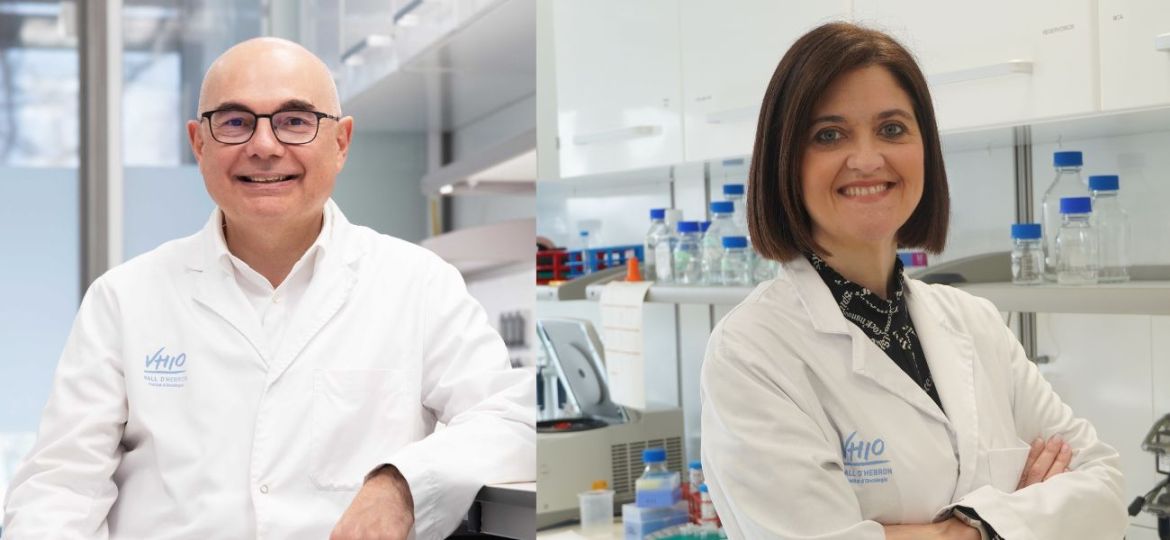
Announced by the European Medicines Agency (EMA) last month, June 21, the highly selective and potent VEGFR inhibitor fruquintinib has been approved as the first novel targeted therapy in the EU for metastatic colorectal cancer (mCRC), irrespective of biomarker status, in over a decade.
Developed by Takeda Pharmaceuticals, fruquintinib received a positive opinion from the Committee for Medicinal Products for Human Use (CHMP) on April 25 this year, and approval by the U.S. Food and Drug Administration (FDA) for adults with mCRC who have been previously treated with oxaliplatin- and irinotecan-based regimens on November 8, 2023.
Based on the results from the phase 3 multicenter and international FRESCO-2 trial* co-directed by VHIO’s Director Josep Tabernero and Cathy Eng at the Vanderbilt-Ingram Center in Nashville, fruquintinib has now been approved for the treatment of adult patients with refractory mCRC who have progressed on all available standard therapies or are intolerant to treatment with either trifluridine-tipiracil or regorafenib.
In colorectal cancer, the vascular endothelial growth factor (VEGF) promotes tumor angiogenesis which plays a key role in tumor growth, invasion and metastasis. “Over recent years, inhibitors targeting the VEGF tyrosine kinase signaling pathway have been developed to block new blood vessel formation in tumors to control disease or halt cancer growth,” said Josep Tabernero, Head of the Medical Oncology Department at the Vall d’Hebron University Hospital (HUVH).
Fruquintinib is a selective oral inhibitor of all three VEGF receptors (-1, -2 and -3). The FRESCO-2 study included 686 patients with refractory mCRC across 124 different sites in 14 countries. Patients were randomly assigned to receive fruquintinib (461) or placebo in the absence of any other approved, alternative treatment in this setting. Both groups received best supportive care. Patients enrolled in this study had received all currently approved cytotoxic and targeted therapies and progressed on, or been intolerant to, the combination of trifluridine/tipiracil and/or VEGFR inhibitor regorafenib.
Significant improvements in overall survival and progression-free survival
The benefit of fruquintinib over placebo was evidenced by the 34% reduction in the clinical variable of risk of death and the 68% reduction in that of risk of disease progression or death. At 6 months, 24% of patients on fruquintinib versus 1% on placebo were progression free.
Overall survival and progression-free survival benefits were observed across nearly all prespecified subgroups, including those with poor prognostic factors. Improvements with fruquintinib were seen regardless of prior therapy, including previous treatment with trifluridine/tipiracil (over 90% of patients) and/or regorafenib.
“These results were particularly significant given that 48% of patients had received prior treatment with regorafenib. Inhibition of angiogenesis remains an important mechanism of disease control even in later lines of treatment,”observed Elena Élez, Head of VHIO’s Colorectal Cancer Group, Medical Oncologist at Vall d’Hebron, and co-author of FRESCO-2. She added, “The higher selectivity of fruquintinib compared with other approved anti-VEGF/VEGFR therapies could explain the efficacy benefit observed in patients treated with fruquintinib, regardless of previous exposure to regorafenib.”
“Considering the complex nature of this disease, introducing innovative treatments such as fruquintinib, an oral and chemotherapy-free targeted agent, is an important step. Offering our patients a new treatment option with the optimum quality of life, especially at advanced stages of disease, is of paramount importance,” concluded Tabernero, co-senior author of the FRESCO-2 study.
###

























